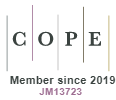Determination of Exponential Congestion Factor of Road Traffic Flow Caused By Irregular Occurrences
DOI:
https://doi.org/10.15415/mjis.2020.91003Keywords:
Queuing Theory, Exponential Congestion Model, Road Traffic Flow, Irregular OccurrencesAbstract
The present paper deals exponential congestion model of road traffic flow caused by irregular occurrences. Congestion that is happened by unpredictable events, for example, auto collisions, handicapped vehicles, climate conditions, over burdens and unsafe materials of vehicles. On account of these sorts of sudden occasions, the travel times taken on the roadways are questionable. We established the steady state conditions based on number of vehicles on road links. The large c values of those links, M/M/1 queues model under the batch service interruptions may be used. The formulation and assumptions of the proposed models have been developed. The exponential congestion factor (ECF) models based on M/MSP/C queuing have been presented. Finally, the numerical examples have also been discussed.
Downloads
References
Arasan,V.T., Koshy, R.Z.: Methodology for Modeling Highly Heterogeneous Traffic Flow. Journal of Transportation Engineering 131(7), 544-551 (2005). https://doi.org/10.1061/(ASCE)0733-947X(2005)131:7(544)
Babicheva, T.S.: The use of queuing theory at research and optimization of traffic on the signal-controlled road intersections. Procedia Computer Science 55, 469-478 (2015). https://doi.org/10.1016/j.procs.2015.07.016
Baykal-Gürsoy, M., Duan, Z.: Stochastic decomposition of queues in a random environment. ISE Working Paper, 07-022 (2007).
Baykal-Gürsoy, M., Xiao, W.: Stochastic decomposition in M/M/∞ queues with Markov-modulated service rates. Queuing Systems 48(1-2), 75-88 (2004). https://doi.org/10.1023/B:QUES.0000039888.52119.1d
Baykal-Gürsoy, M., Duan, Z., Xu, H.: Stochastic models of traffic flow interrupted by incidents. IFAC Proceed-ings Volumes 42(15), 442-449 (2009). https://doi.org/10.3182/20090902-3-US-2007.0107
Baykal-Gürsoy, M., Xiao, W., Ozbay, K.: Modeling traffic flow interrupted by incidents. European Journal of Operational Research 195(1), 127-138 (2009). https://doi.org/10.1016/j.ejor.2008.01.024
Cheah, J.Y., Smith, J.M.: Generalized M/G/C/C state dependent queuing models and pedestrian traffic flows. Queuing Systems 15, 365–385 (1994). https://doi.org/10.1007/BF01189246
Drake, J.S., Schofer, J.L., May, A.D.: A statistical analysis of speed density hypotheses. Third International symposium on the theory of Traffic flow Proceedings. Elsevier North Holland Inc., New York (1967).
Greenshield, B. D.: A System in Highway Capacity. Highway Research Board Proceeding. 14. 458 (1935).
Daganzo, C.F.: Fundamentals of Transportation and Traffic. Operations, Pergamon–Elsevier, Oxford, UK (1997). https://doi.org/10.1108/9780585475301
Easa, S.M., May, A.D.: Generalized procedure for estimating single- and two–regime traffic flow models. Trans-portation Research Board 772, Washington D. C. 24 – 37 (1980).
Ferreira, F., Pacheco, A., Teodoro, M.F.: Performance evaluation of airport taxi services provision. International Journal of Mathematical Modeling and Numerical Optimization 2(3), 297-312 (2011). https://doi.org/10.1504/IJMMNO.2011.040794
Heidemann, D.: A queuing theory model of no stationary traffic flow. Transportation Science 35(4), 405–412 (2001). https://doi.org/10.1287/trsc.35.4.405.10430
Heidemann, D.: A queuing theory approaches to speed–flow–density relationships in transportation and traffic theory. Proceedings of the 13th international Symposium on Transportation and Traffic Theory, Lyon France, 24-26 July 1996.
Jain, R., Smith, J.M.: Modeling vehicular traffic flow using M/G/C/C state dependent. Queuing models. Transportation Science 31(4), 324–336 (1997). https://doi.org/10.1287/trsc.31.4.324
Jiang, R., Wu., Q.-S., Zhu, Z.-J.: A new continuum model for traffic flow and numerical tests, Transportation Research Part B 36, 405–419 (2002). https://doi.org/10.1016/S0191-2615(01)00010-8
Mala, Verma, S.P.: Minimization of Traffic Congestion by Using Queuing Theory. IOSR Journal of Mathematics 12(1), 116-122 (2016).
Pal, R., Sinha, K.C.: Simulation model for evaluating and improving effectiveness of freeway service patrol pro-grams. Journal of Transportation Engineering 128(4), 355–365 (2002). https://doi.org/10.1061/(ASCE)0733-947X(2002)128:4(355)
Pandey, M.K., Gangeshwer, D.K.: A markovian queuing model with heterogeneous server based on specific ser-vices on health sector. International Journal of Applied Mathematics and Statistics 58(1), 28-35 (2019).
Rajadurai, P.: A study on M/G/1 retrial queuing system with three different types of customers under working vacation policy. International Journal of Mathematical Modeling and Numerical Optimization 8(4), 393-417 (2018). https://doi.org/10.1504/IJMMNO.2018.094550
Sheu, J.-B.: A sequential detection approach to real-time freeway incident detection and characterization. Euro-pean Journal of Operational Research 157(2), 471–485 (2004). https://doi.org/10.1016/S0377-2217(03)00209-1
Underwood, R.T.: Speed, Volume and Density Relationships, Quality and Theory of Traffic Flow. Yale Bureau of Highway Traffic, New Haven Connecticut, 141 – 188 (1961).
Vandaele, N., Van Woensel, T., Verbruggen, N.: A queuing based traffic flow model. Transportation Research – Part D: Transport and Environment 5(2), 121–135 (2000). https://doi.org/10.1016/S1361-9209(99)00028-0
Wang, R., Ruskin, H.J.: Modeling traffic flows at a single-lane urban roundabout. Computer Physics Communications 147(1-2), 570–576 (2002). https://doi.org/10.1016/S0010-4655(02)00362-4
Woensel, T.V., Vandaele, N.: Modeling Traffic Flows With Queuing Models: A Review. Asia Pacific Journal of Operational Research 24(4), 435-461 (2007). https://doi.org/10.1142/S0217595907001383
Yang, S., Yang, X.: The application of the queuing theory in the traffic flow of intersection. International Journal of Mathematical, Computational, Physical, Electrical and Computer Engineering 8(6), 986-989 (2014).
Downloads
Published
How to Cite
Issue
Section
License
Articles in Mathematical Journal of Interdisciplinary Sciences (Math. J. Interdiscip. Sci.) by Chitkara University Publications are Open Access articles that are published with licensed under a Creative Commons Attribution- CC-BY 4.0 International License. Based on a work at https://mjis.chitkara.edu.in. This license permits one to use, remix, tweak and reproduction in any medium, even commercially provided one give credit for the original creation.
View Legal Code of the above mentioned license, https://creativecommons.org/licenses/by/4.0/legalcode
View Licence Deed here https://creativecommons.org/licenses/by/4.0/
 |
Mathematical Journal of Interdisciplinary Sciences by Chitkara University Publications is licensed under a Creative Commons Attribution 4.0 International License. Based on a work at https://mjis.chitkara.edu.in |









